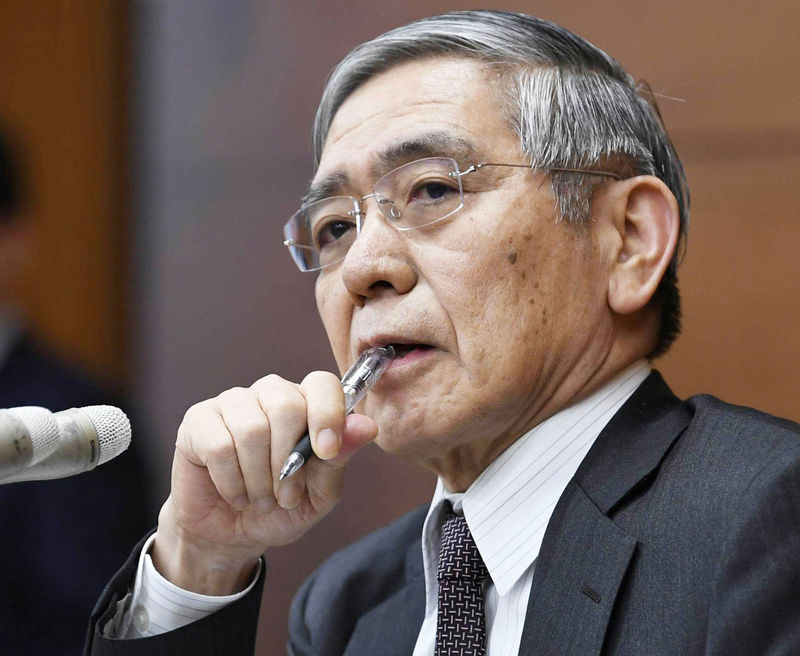By Leika Kihara
TOKYO (Reuters) - Bank of Japan Governor Haruhiko Kuroda said the central bank would "of course" consider easing monetary policy further if the economy lost momentum toward achieving its 2 percent inflation target, the Asahi newspaper reported on Friday.
It has various ways it could do this including cutting interest rates and accelerating government bond purchases, and it could combine such steps if needed, Kuroda was quoted as saying in the interview he gave the paper on Thursday.
"The BOJ will adopt policy that is most appropriate in light of economic and financial developments, and has the least side-effects," Kuroda said.
The central bank must be mindful of the risk that prolonged easing could strain financial institutions, particularly regional banks under pressure from a dwindling population, he said.
But he added that it was inappropriate to modify the BOJ's current policy framework before its 2 percent inflation target is met, according to the Asahi. He also shrugged off the idea of altering the 2 percent price goal.
Earlier in the week Kuroda flagged the BOJ's readiness to ease policy further if sharp yen rises hurt the economy.
Kuroda told the Asahi that this year's scheduled domestic sales tax hike is unlikely to have a big negative impact on Japan's economy.
He also said the BOJ expects the global economy to continue expanding "fairly steadily" despite risks such as trade tensions and Britain's exit from the European Union.
Under a policy dubbed yield curve control (YCC), the BOJ guides short-term interest rates toward minus 0.1 percent and the 10-year government bond yield toward zero percent.
It also buys government bonds and risky assets, and commits to increasing base money - or money circulating in the economy - until inflation stably exceeds 2 percent.
The BOJ faces a dilemma. Years of heavy money printing has dried up market liquidity and hurt commercial banks' profits, stoking concern over the rising risks of prolonged easing.
And yet, subdued inflation has left the BOJ well behind its U.S. and European counterparts in dialling back its crisis-mode policies, leaving it with little ammunition to battle an abrupt yen spike that could derail an export-driven economic recovery.
Simmering Sino-U.S. trade tensions and fears of a global slowdown have added to the BOJ's headaches. Japan's exports in January posted their biggest decline in more than two years and manufacturing activity contracted in February for the first time in two-and-half years, a sign the economy is feeling the pain from slowing Chinese demand.
